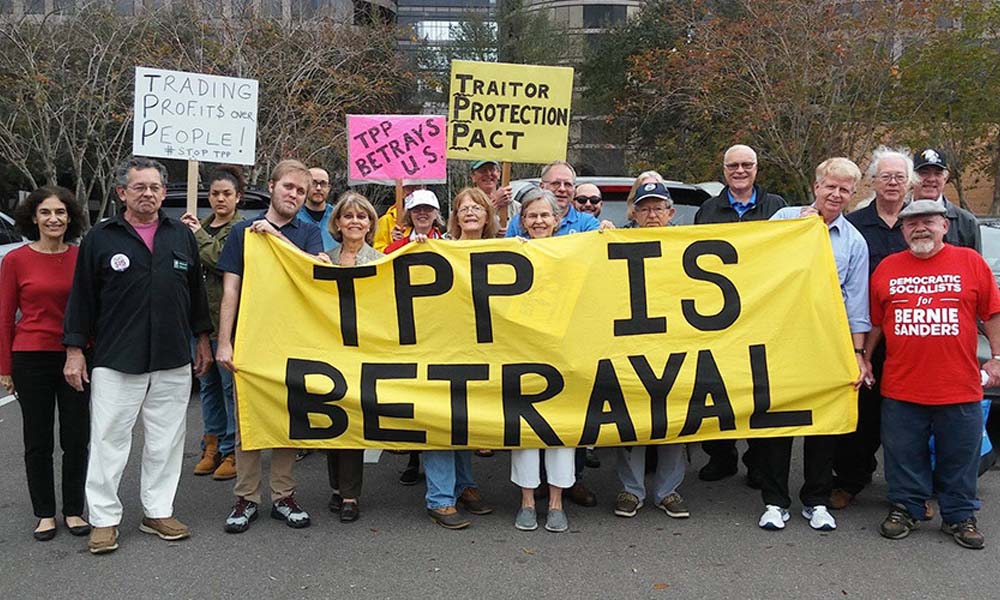

Share
The proposed Democratic Party platform for the 2016 presidential campaign includes language that is close to an outright rejection of the controversial jobs-destroying Trans Pacific Partnership “free trade” pact, union leaders who monitored and attended platform committee hearings say.
The TPP and universal government-run health care were the last two big issues splitting supporters of prospective nominee Hillary Clinton and her last remaining challenger, Sen. Bernie Sanders, Ind.-Vt. Sanders conceded to Clinton, with a hearty endorsement, on July 12.
Union leaders said the platform, like Clinton, virtually rejects the TPP. The GOP, big business and President Barack Obama are trying to push it through the GOP-run Congress, even during a post-election “lame duck” session this year. AFL-CIO President Richard Trumka made clear unionists will hold politicians, including Clinton, to that anti-TPP pledge. Platform writers also dumped language implying some Dems back the TPP.
But the platform doesn’t reject the TPP by name, which is what Sanders and his backers wanted. Their amendments to outright dump it by name lost and some of his backers, chanting “sellout,” walked out. The Democratic platform panel passed the anti-trade pact language, proposed by Clinton supporter AFSCME President Lee Saunders, 117-64.
An independent federal study shows the TPP, which covers the U.S. and 11 other Pacific Rim nations, would cost an estimated 128,000 U.S. factory jobs, even under the best economic circumstances, and would add little to U.S. gross domestic product.
It also would include a secret pro-business trade court, with international trade attorneys as judges, that could kill any federal, state or local law that might reduce present or future corporate profits. The trade court got trashed, the Communications Workers, who have been leading the anti-TPP campaign, said.
“We are especially glad to see the platform so firmly reject the Investor-State Dispute Settlement system” – the trade court – “which has been used time and again by transnational corporations in attempts to undermine important environmental, labor and public health laws and regulations around the globe in the pursuit of greater corporate profits,” the CWA said.
“Secretary Clinton was right to cite ISDS special rights for corporations as a reason to oppose the TPP, and the Democratic Party’s statement against it is a positive one. The inclusion of the language opposing the ISDS system in the platform text going to the convention floor spotlights just how clearly the TPP fails the ‘high standard’ set forth in the platform language.”
The panel’s decision against the TPP was “a major milestone for everyone who believes in the high standard that trade should raise wages and create good jobs,” added Trumka. But it would not have happened without a strong workers campaign “to put the brakes on TPP and forced a real, vibrant debate about ending corporate trade.”

